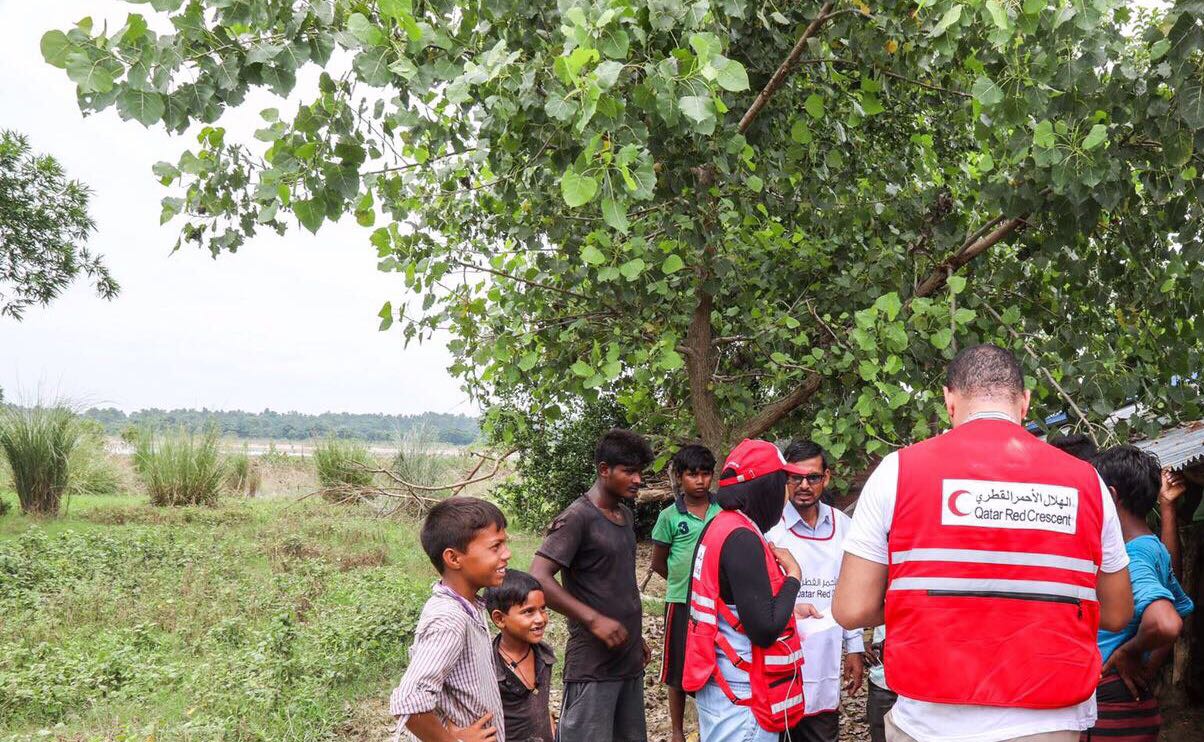Qatar Red Crescent mission arrived in Nepal to provide emergency relief for the floods affected communities

Qatar Red Crescent QRC mission arrived in Nepal to provide emergency relief for the communities recently hit by floods, the support is a donation from Qatar Fund for Development in coordination with Qatar Red Crescent. QRC has allocated 250,000 US Dollars from the disaster response fund for the initial intervention, as well as sending an specialized team from the QRC’s section of Relief and International Development, to contribute to the humanitarian efforts to help affected families and reduce the losses.
The mission of QRC team is to conduct a comprehensive assessment of the situation to come up with the basic needs. In a preparation for aid provision during 3 months, the aid will cover sectors of shelter, water & sanitation, and Non Food Items for 4,000 families (20,000 people), from the most affected families. They will be chosen according to the beneficiary lists prepared by partners in Nepal.
It is worth mentioning that Nepal has witnessed heavy seasonal rains continued for 2 weeks, caused landsides that destroyed the infrastructure such as roads, farms, markets, power and communication cuts, which impeded relief transport. The country has not yet recovered from the effects of 2014 floods and 2015 earthquakes, and still suffers from those disasters.
According to formal reports 27 districts affected by the disaster, 19 out of which has been totally affected, the toll of death reached 143 people, 117 injured and 24 missing. Around 65,000 homes damaged totally, and 120,000 partially damaged. In addition to that 158,000 people displaced, 18,774 out of them sheltered at schools and public places in 6 of the most affected districts while others resorted to unplanned areas.
Numbers of damages are expected to rise with continued downpour of rains, and the difficulty of response teams to reach these areas. The needs of these people is focused in shelter, clean drinking water, sanitation & hygiene facilities, in order to avoid spread of communicable diseases specially in crowded camps.